First-time homebuyers are often surprised to learn that there are closing costs and fees that they are responsible for in addition to their down payment. Today we want to share our helpful list of possible expenses that can be the buyer’s responsibility. Not all the items on this list apply to every transaction, but it is good to be aware of what the possibilities are to the buyer.
What Are Closing Costs?
Closing costs include all the fees for the services and expenses that are required to finalize a mortgage. Most closing costs are the buyer’s responsibility, but sometimes the buyer can request that the seller pays the closing costs. That was far more typical in a less competitive market, but it is a request that can be made with a purchase offer.

The average closing costs are about 2%-5% of the loan amount. You can pay the closing costs out of pocket, or if the lender allows, you can roll them into your financing. If you choose the latter option, keep in mind that you are paying interest over the length of your loan.
Property Related Fees
Home Appraisal: A home appraisal is the verification of the home’s current value. It tells the lender how much the property is worth and if the amount you are asking to borrow is justified. The lender orders the appraisal from a third-party appraisal company, and a professional appraiser will be sent to the home. In addition to checking value, they also do some basic safety checks to make sure the house is inhabitable.
Home Inspection: A home inspection is typically required by lenders to evaluate the property’s condition. A home inspector is sent out to observe and report on the property and provides a report of repairs that need to be made.
Loan-Related Fees
Prepaid Interest: Borrowers may be required to pay the interest that accrues on the mortgage between the closing date and the first payment. The amount of interest will depend on your loan amount, interest rate, and closing date.
Discount Points: You can reduce your interest rates by purchasing discount points. By paying discount points, you reduce the interest rate you pay over the life of your loan, which results in a better mortgage rate. If you plan to stay in your home for a long time, it makes sense to get the best interest rate possible as it will save you money over time.
Mortgage Insurance Fees
Upfront Mortgage Insurance: Some lenders require borrowers to pay the first year’s mortgage insurance premium upfront, while others may ask for a lump-sum payment that covers the life of the loan.

Private Mortgage Insurance (PMI): If your down payment is less than 20%, your lender will require that you pay PMI. Protecting the lender if you default on the loan is in place.
FHA, VA, and USDA Funding Fees: If the Federal Housing Administration insures your loan, you’ll be required to pay FHA mortgage insurance. If it is guaranteed by the Department of Veteran’s Affairs or the US Department of Agriculture, you will pay guarantee fees.
Property Taxes, Annual Fees, and Insurance
Property Taxes: Borrowers typically pay three months of county property taxes at closing to be added to the escrow account for your mortgage.
Homeowners Insurance Premium: Usually, the lender requires that you purchase homeowner’s insurance before closing. This covers the property in case of vandalism and damage.
Closing Fee: Closing fees go to the escrow company or attorney who conducts your closing meeting.
Courier Fee: Courier fees cover the cost of transporting mortgage documents.
Escrow Funds: Often referred to as reserve fees or prepaids, escrow funds are reserved money your lender keeps in a particular account. The funds are used to make payments on your behalf as a part of your regular mortgage payment.
Flood Certification: If your home is on or near a flood plain, you may need flood certification. This money goes to the Federal Emergency Management Agency, which uses the data to plan for emergencies and target high-risk zones.

Homeowners Association Transfer Fee: If the home you are purchasing has an HOA, you will need to pay a homeowners association transfer fee. This covers the cost of moving the responsibility of HOA fees from seller to buyer.
Lender’s Title Insurance: Lender’s title insurance repays the bank if you lose your home to a title claim.
Lead-Based Paint Inspection: If buying a home built before 1979, it might have lead paint. This fee covers a test for lead in the home.
Property Tax: Fees paid to your local government for public services.
Rate Lock Fee: Some lenders charge a fee to lock in the interest rate between preapproval and closing.
Recording Fee: A recording fee is paid to your local city or county government to update public land ownership records.
Survey Fee: In some states, you have to get a land survey before completing a home sale. The survey fee goes to the survey company that verifies and confirms your property lines before closing.
As we mentioned before, this list of possible fees does not apply to every transaction. Before you start the homebuying process, give us a call, and let’s chat about the fees you can expect to pay. The Mortgage Momma and First Rate Financial team are always happy to help you finance your home search!




Leave a Reply